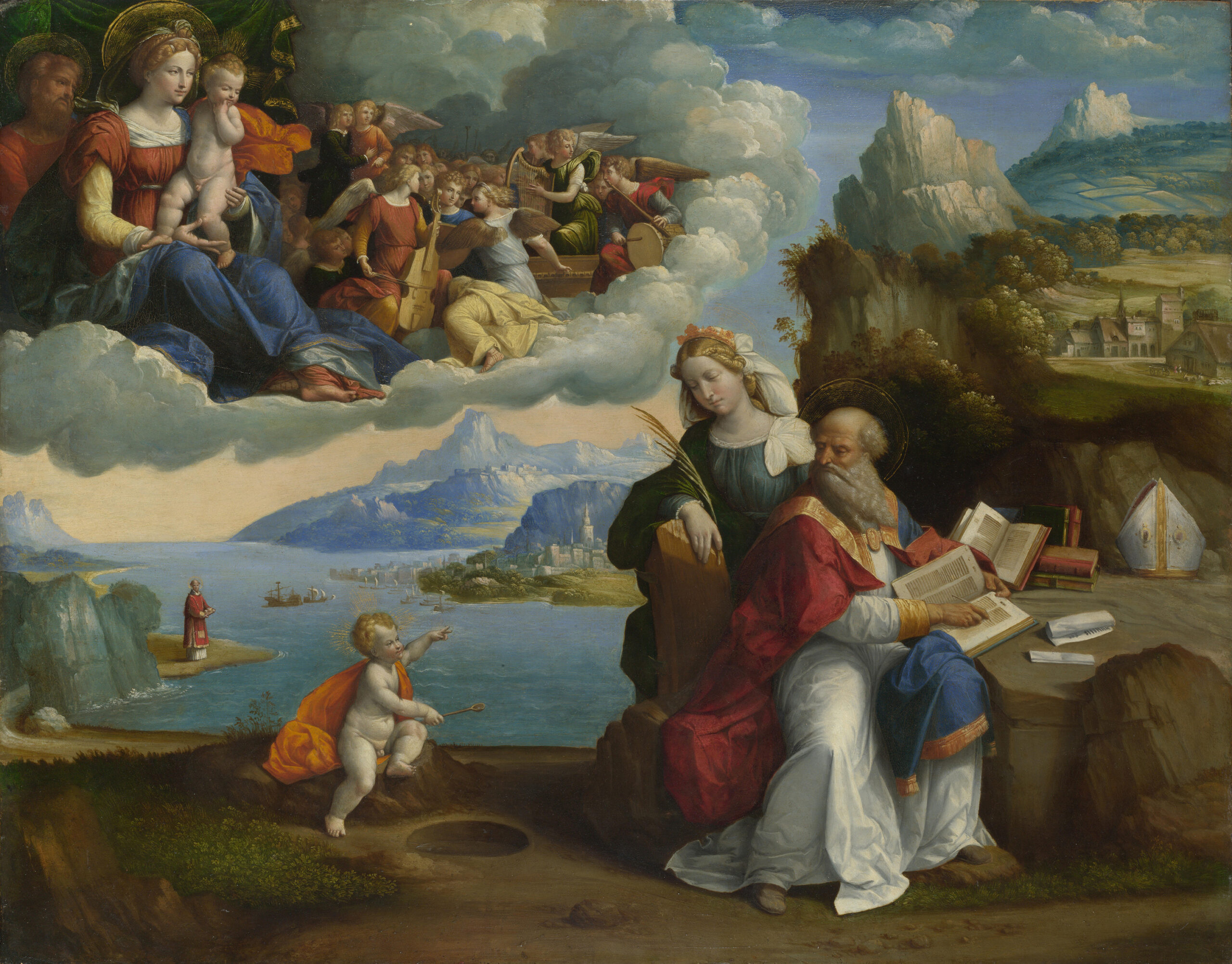Much of the study at that time consisted of mere memorizing by rote, since in the days before printing ready reference works were scarce. Though the formal rules of scholarly debate were fixed, there was, nonetheless, lively discussion. Discussion and teaching were particularly preoccupied with defining systems by which people could live faithfully within the expectations of Christendom.
At the turn of the eleventh century, Gerbert of Aurilac, who became Pope Sylvester II (r. 999-1003), stood out as the most learned man of his day. His probing mind delved into the portions of Aristotle that Boethius had translated and discovered in logic a systematic means of approaching the writings of the church fathers. By the end of the century, churchmen could debate whether it was proper to use human reason to consider a particular theological question and in efforts to explain away inconsistencies in the Bible and in the writings of the church fathers.
Once the new method became available, the dogmatists of the late eleventh and early twelfth centuries employed it in a celebrated controversy over the philosophical problem of universals. A universal encompasses a whole category of things; when we say “dog” or “table” or “person,” we mean not any specific dog or table or person, but the idea of all dogs, tables, or people. The question that concerned medieval thinkers was whether universal categories exist: Is there such a thing as dogdom, tabledom, or humanity apart from the aggregate of individuals?
If you said no, you were a nominalist, that is, you thought dogdom, tabledom, humanity were merely nomina—names that people give to a general category from their experience of individual members of it. You experience dogs, tables, persons, and so you infer the existence of dogdom, tabledom, humanity because the individual members of the category have certain points of resemblance; but the category, the universal, has no existence in itself.
If you said yes, you were a realist, that is, you thought that the general categories did exist. Many realists took this view a large step further and said that the individual dog, table, or person was far less real than the generalizing category or universal. Some said that the individual dog, table, or person was a mere reflection of one aspect of the category and existed only by virtue of belonging to the category: a person exists only by partaking of the nature of humanity, a dog because it partakes of the nature of dogdom.
If we transfer this question to politics and think of the state and the individual, we can see at once how great its practical importance may be. A pure nominalist would say that the state is just a name and exists only because the individuals who make it up are real. It could therefore be argued that the state must then serve its subjects, since after all it is only the sum of their individualities.
A pure realist would say that the state is the only real thing, that its individual subjects exist only insofar as they partake of its general character, and that the state, by virtue of its existence, properly dominates the individual. In religion, an extreme nominalist, arguing that what we can perceive through our senses is alone real, might even have trouble believing in the existence of God. An extreme realist would tend to ignore, or even to deny, the existence of the physical world and its problems.
Moderate realists have to start with faith—to believe so that they may know, as Anselm (1033-1109) put it. A philosopher and theologian, Anselm founded the approach to knowledge known as Scholasticism, which is based in part on his ontological proof for the existence of God. According to Anselm’s proof, that which exists in reality as well as in the mind must be greater than that which exists in the mind alone, and since the mind can conceive the idea of a being greater than all else, it logically follows that this being must exist in reality as well as in the mind, or it is not in fact greater than anything else.
Peter Abelard (1079-1142), a popular lecturer at the University of Paris, argued that universals were not merely names, as the nominalists held, nor did they have a real existence, as the realists held. They were, he said, concepts in people’s minds, and as such had a real existence of a special kind. Abelard’s compromise between nominalism and realism is called conceptualism.
Abelard insisted on the importance of understanding for true faith. He put reason first, and thus a person must understand in order to believe, instead of the other way around. His famous work Sic et Non (Yes and No), lists more than 150 theologies’ statements and cites authorities both defending and asking the truth of each. When Scripture and the fathers were inconsistent, he seems to argue, how could a person decide what to believe without logical thought? A rationalist and lover of argument, Abelard was nonetheless a deeply pious believer. However, Bernard the Cistercian, who was a mystic and suspicious of reason, believed Abelard heretical and had his views condemned and denounced repeatedly.

